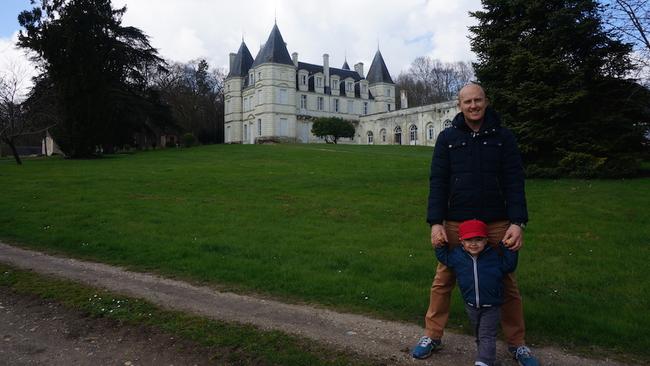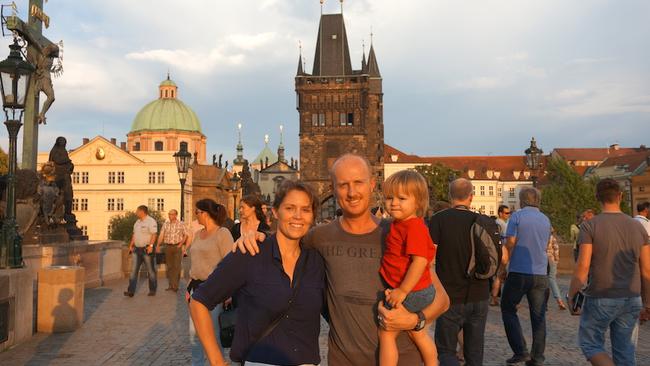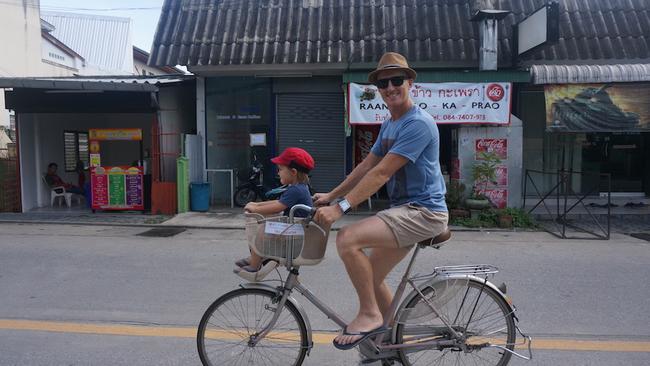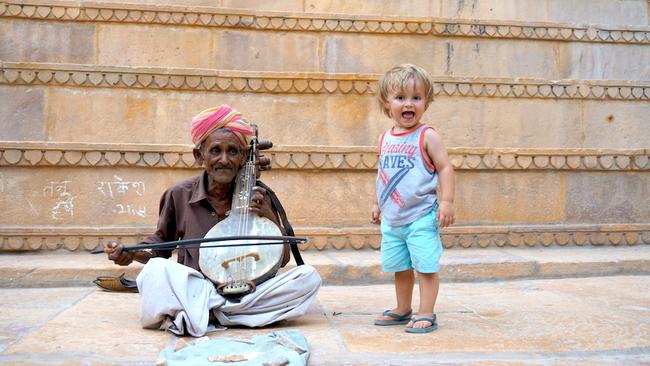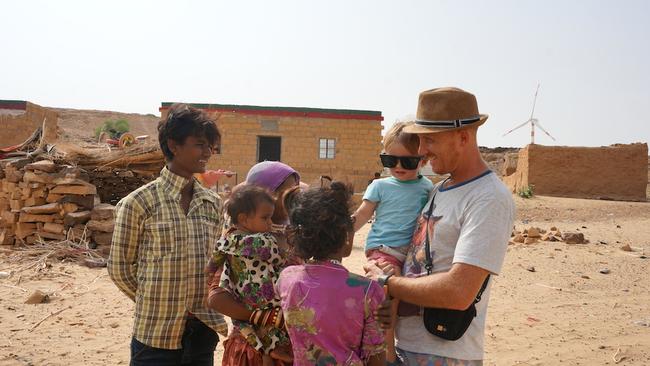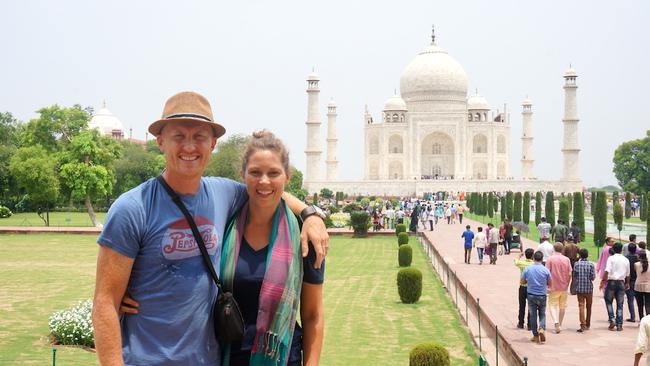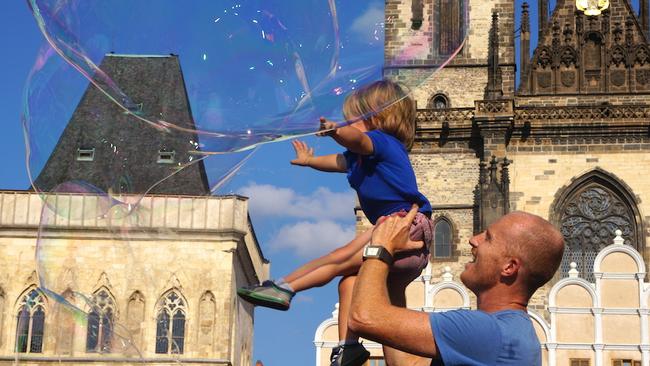How to break free and still get paid
TRAVELLING the world, working odd jobs and sleeping on couches might seem like a gen Y kind of thing, but this family did it — with a toddler in tow.
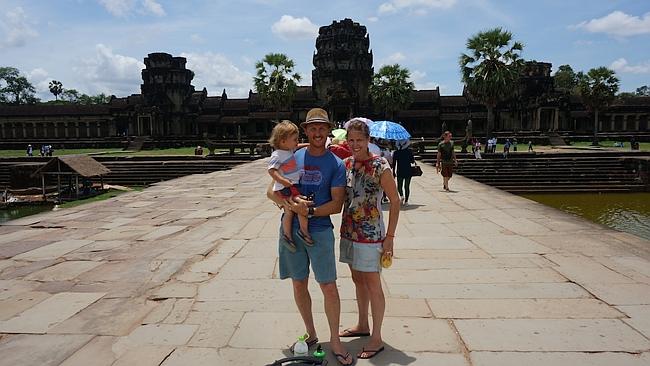
TRAVELLING the world, working odd jobs, staying in hotels and sleeping on couches might seem like a strictly gen Y kind of thing, but this Australian family did it with a toddler in tow.
Chris Appleford, 41, and wife Sarah, 31, managed to pay their way through 11 countries across southeast Asia, India, the Middle East and Europe — not by working in pubs and picking fruit, but by taking freelance jobs online.
No, it’s not for everyone, but it is possible.
It demonstrates how booming freelance marketplaces like Upwork, Freelancer and Expert360 have opened up opportunities for professionals to make their skills pay without being tied to an office.
A recent survey by Upwork estimated about 3.7 million Australians, or 30 per cent of the workforce, undertook some sort of freelance work. Australia has been named the biggest market for online work outside of the US, valued at an estimated $51 billion.
By working a few days each and staying close to an internet connection, the Applefords managed to pull in about $1500 a week — supplemented by money from their savings — during their 12 months abroad.
They first headed to southeast Asia in April last year after packing up and selling everything they owned. Chris got a job teaching, but Sarah soon got bored looking after their two-year-old son Jack and began searching for work online by creating a profile on Upwork.
“We owned two properties back home, so we had to find the money on our travels to pay our mortgages,” Mr Appleford said. Eventually Chris ditched the teaching to join his wife in taking online jobs — mainly copywriting, content development and online marketing.
With online freelance work, you can either fill demand by applying for jobs, or create your own through referrals by building a reputation and having the work come to you.
“Initially it started off doing jobs that were paying $8 or $9 an hour, just to get some runs on the board,” he said. “You do a good job, get nice comments and ratings, and other people ask you to apply. It didn’t take long for us to start earning enough money to travel.”
The pair worked a combined 30 hours a week, but Chris says they could have easily found enough clients to work 40 or 50 hours.
From house-sitting a castle in France to staying in communal housing in Cambodia, as long as they had an internet connection they could work.
Out of all the countries they visited — Vietnam, Cambodia, Thailand, India, United Arab Emirates, Austria, Czech Republic, Switzerland, France, Belgium and Holland — surprisingly they had the best internet access in southeast Asia.
“We certainly weren’t full-timers because we wanted to travel and experience everything. There would be no point working full-time but just being somewhere else.”
And he claims getting consistent work wasn’t an issue. “If you search hard enough, apply for enough jobs and really promote yourself, you can find enough work to sustain your travels,” he said. “It’s not that hard.”
But Mr Appleford admits travelling with a toddler for such an extended period wasn’t easy. “It’s not like getting on a plane to Bali for two weeks, sitting by a pool and coming home. We had some really tough moments,” he said.
“But I feel as though he’s built up a level of resilience that he might not have had if we were just still in Australia. He’s travelled around Thailand and Europe in overnight trains, waited on train platforms in India at 1am, lived in communal third-world accommodation in Cambodia.”
The Applefords returned to Australia in April, and are planning to do it all over again, next time through South America, Central America and the US.
“People in Australia are finding it more difficult to go on holiday and buy their first home, but there are great new ways to make ends meet,” he said. “This global sharing community is opening up the world to so many more possibilities.”
